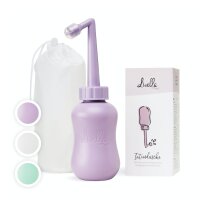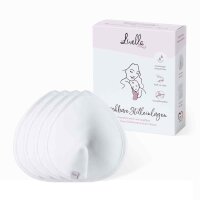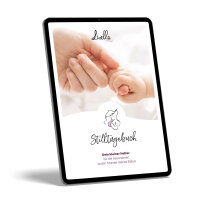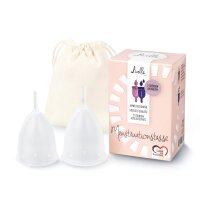There are many different things mums-to-be have to keep in mind when it comes to what they are allowed to eat and drink during pregnancy. One topic that is frequently discussed among future mothers is the consumption of caffeine in pregnancy.
Especially in the third trimester, when sleep deprivation hits record highs, it’s very tempting for mothers to increase their caffeine intake to make up for the missed hours of sleep. But how much caffeine is safe in pregnancy?
Should pregnant women have coffee or tea at all? What other drinks contain caffeine? How can caffeine affect the foetus? Read on as we answer all your questions about caffeine and coffee in pregnancy.
Table of contents
Caffeine in pregnancy: effects on mother and baby
Caffeine and coffee in pregnancy: how much is safe?
Suitable alternatives to coffee in pregnancy
Caffeine in pregnancy: tips for keeping your baby safe
A final word on caffeine in pregnancy
Caffeine in pregnancy: effects on mother and baby
Caffeine is a stimulant that is found in coffee and black tea, among others. The stimulant has several effects on the human body, also during pregnancy. Caffeine consumption during pregnancy can cause problems because the stimulant passes through the placenta from the mother to the unborn baby whose body is unable to clear the caffeine.
Here is an overview of the effects of high caffeine intake in pregnancy.
Effects on the mother:
- inhibited iron absorption, which increases the risk of iron deficiency during pregnancy
- sleep disturbances which can aggravate lack of sleep even further
Also, mums-to-be should keep in mind that caffeine clearance from their blood slows down during pregnancy. Since the body takes longer to get rid of the caffeine, this leads to higher caffeine exposure for the baby.
Effects on the baby:
- narrowing of the blood vessels
- growth restriction (even after birth)
- higher probability of low birth weight
- symptoms of caffeine withdrawal after birth (e. g. restlessness)
- behavioural problems later in life, such as hyperactivity
- obesity later in life
Research further shows that a caffeine intake of more than 300 mg per day increases the risk for miscarriage.
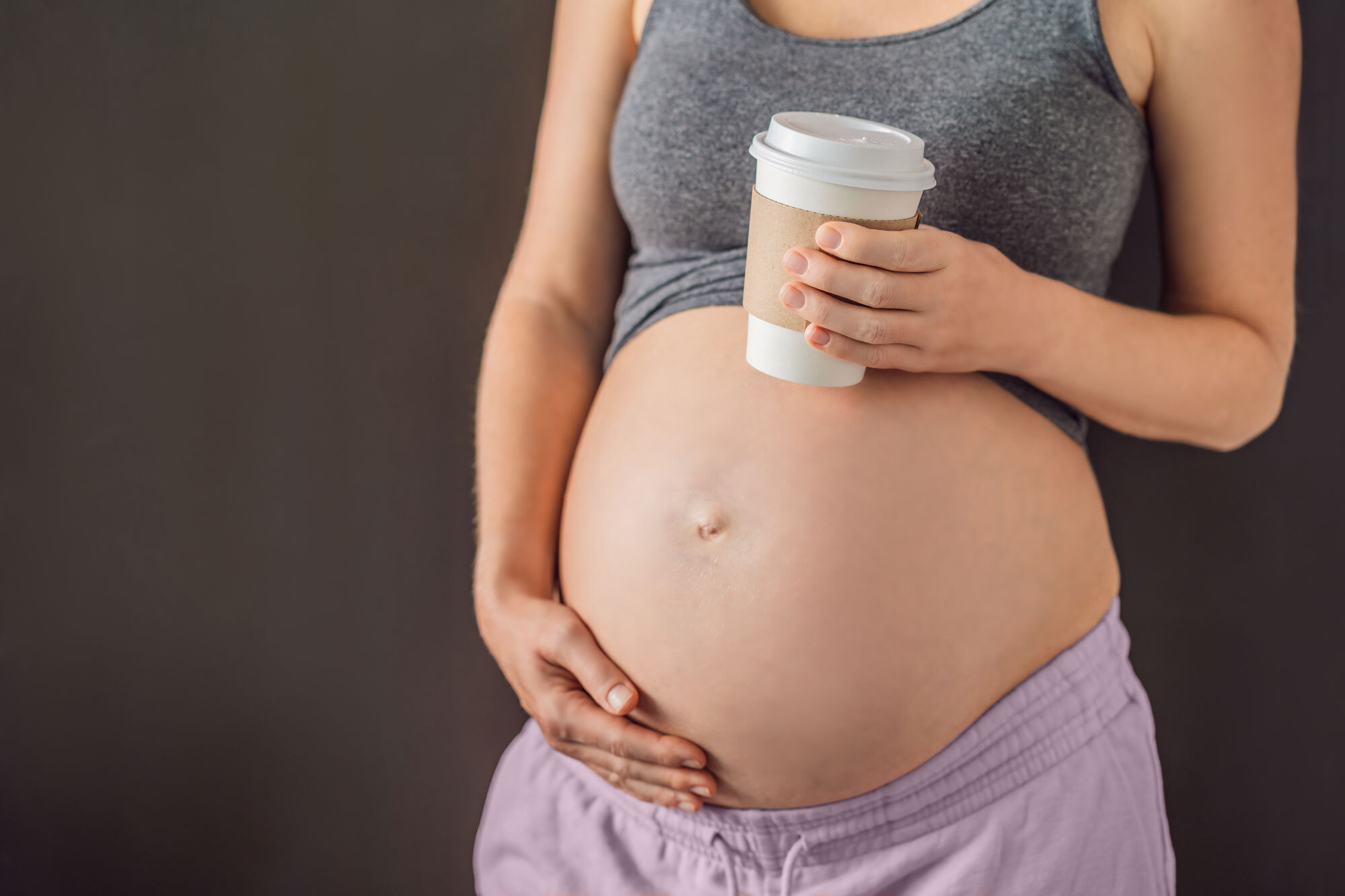
Caffeine and coffee in pregnancy: how much is safe?
High caffeine intake during pregnancy carries different risks for the baby. It is therefore recommended that pregnant women should limit their daily caffeine intake to 200 mg per day. That’s the limit of caffeine in pregnancy that is considered safe by the European Food Safety Authority (EFSA).
While this recommendation sounds pretty straightforward, following it is not so easy without a little background knowledge. How much is 200 mg of caffeine? And how much caffeine is in iced tea, coke and coffee?
Here is an overview showing the caffeine content for different beverages:
- 200 ml black tea: approx. 45 mg caffeine
- 200 ml green tea: approx. 30 mg caffeine
- 60 ml espresso: approx. 80 mg caffeine
- 200 ml filter coffee: approx. 90 mg caffeine
- 250 ml cola: approx. 25 mg caffeine
It is generally not recommended to have energy drinks during pregnancy. The same goes for women who are breastfeeding. Cutting back on caffeine is an essential part of a healthy breastfeeding diet.
Until recently, the general recommendation for mums-to-be was to limit their daily coffee intake to two cups a day. However, new studies have revealed that even small amounts of caffeine in pregnancy can have negative effects on the baby. Therefore, it’s best to ban coffee and other caffeinated beverages from your pregnancy diet altogether.
Beware of hidden caffeine: Caffeine is not only found in beverages. The popular soul food, aka chocolate, also contains caffeine. Dark chocolate, which is generally considered to be a healthier chocolate variant, even contains more caffeine than milk chocolate. Some caffeine is also found in hot chocolate. Keep this in mind when monitoring your daily caffeine intake during pregnancy and breastfeeding.
Suitable alternatives to coffee in pregnancy
Those who are used to kick-starting the day with a steaming hot cup of coffee often find it hard to imagine their mornings without the energising beverage. Since it’s better to avoid caffeine in pregnancy, mums-to-be need to find suitable alternatives. Here are some ideas.
- Exercising instead of coffee: Mums-to-be who struggle to wake up properly in the morning without caffeine should do some exercising instead. Physical activity gets your circulation going and awakens your spirits.
- Herbal or fruit teas: A cup of tea can work real wonders for body and soul. It doesn’t have to be green or black tea. Prefer herbal or fruit teas during pregnancy.
- Cold water to freshen up: Pregnant women who are morning grouches or who find it hard to overcome their midday slump should try cold water. Running cold water over your arms and wrists can help you feel more awake.
- Decaffeinated hot beverages: Coffee and black tea are undoubtedly among the most popular hot drinks, but there are plenty of healthy coffee alternatives for pregnancy. Hot drinks that don’t contain caffeine (or at least less caffeine than black tea or coffee) include rooibos tea, peppermint tea, cocoa (preferably not a high-sugar ready-made product) and chai latte.
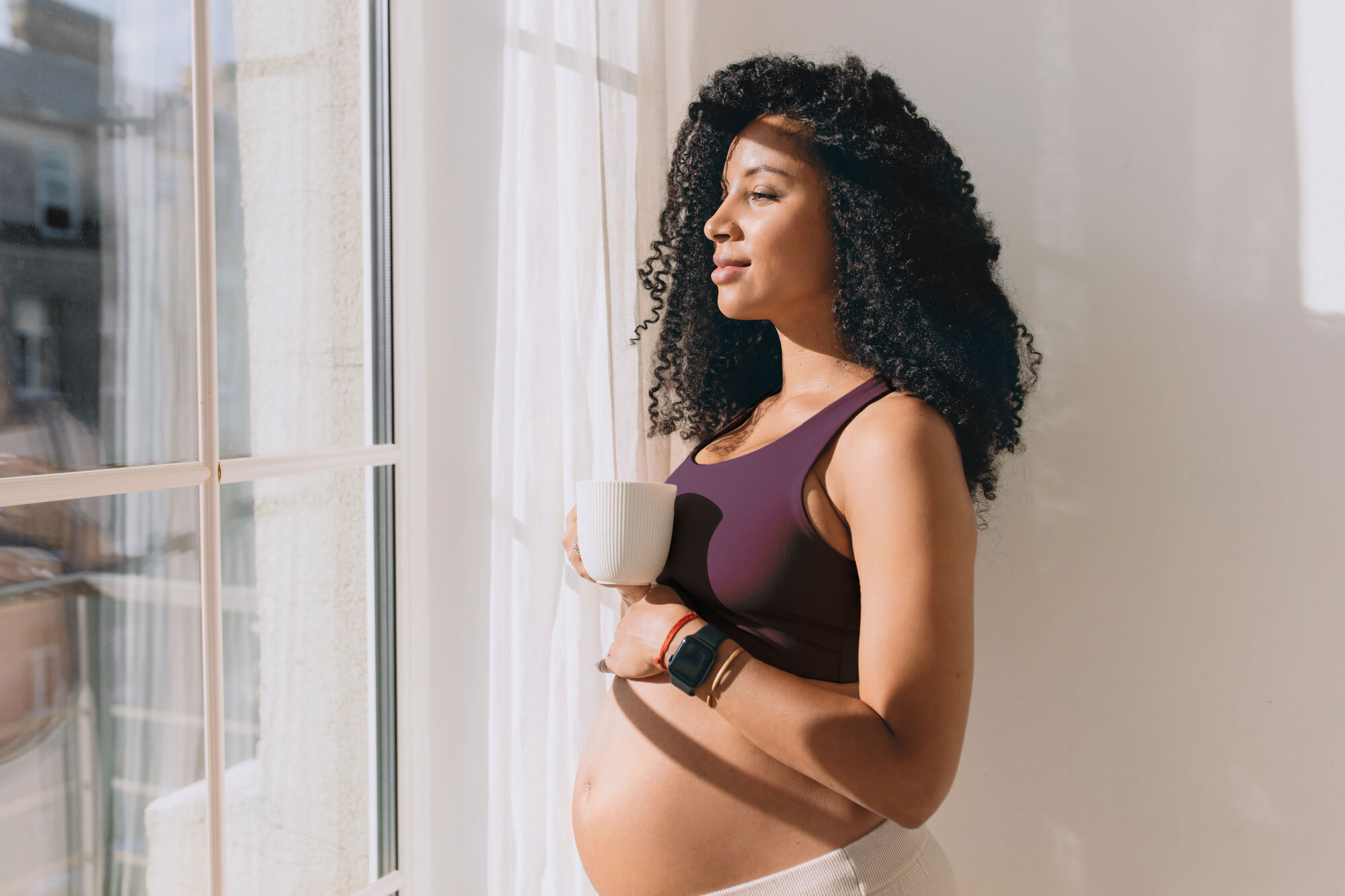
Caffeine in pregnancy: tips for keeping your baby safe
If you really can’t go without coffee in pregnancy, you should at least try to stick to a few rules. Here are a few tips to reduce the effects of your coffee intake during pregnancy.
- Switch to decaf coffee: If it’s not the caffeine but rather the taste of coffee that you crave, then switching to decaf coffee in pregnancy is the way to go.
- Limit your coffee intake to a certain time of day: During pregnancy, caffeine clearance from your blood is slower than usual. Mums-to-be who drink several cups of coffee throughout the day (e. g. in the morning, at noon and in the afternoon) don’t allow for enough time for their body to clear the caffeine, which means that they often still feel the effects during the night.
- Respect the daily limit of 200 mg of caffeine per day: Pregnant women should not exceed a daily caffeine intake of 200 mg per day. In cups of coffee, that’s two cups of filter coffee at 200 ml each. Anything beyond this is too much and can adversely affect your baby’s health.
A final word on caffeine in pregnancy
Coffee in pregnancy is a much-discussed topic among mums-to-be. Here are the key takeaways at a glance.
- During pregnancy, the body needs more fluids to stay hydrated. However, pregnant women should choose healthy drinks such as tap water, unsweetened teas or diluted fruit juices instead of increasing their coffee intake.
- Caffeine in pregnancy can have negative effects on mother and child.
- Coffee is not the only beverage that contains caffeine. The stimulant is also found in black tea, energy drinks and chocolate.
- According to the EFSA, a daily caffeine intake of up to 200 mg per day is safe during pregnancy. However, new studies show that even small amounts of caffeine could adversely affect the unborn child.
- If possible, pregnant women should completely eliminate caffeine from their diet. The stimulating effect of coffee can be replaced with physical activity or cold baths.
- Suitable alternatives to drinking coffee in pregnancy include herbal, fruit and rooibos tea as well as decaf coffee.
References
- https://shop.bzga.de/rundum-schwangerschaft-und-geburt-13500000/
- Handlungsempfehlungen - Ernährung in der Schwangerschaft | DGE
- Ernährung und Lebensstil vor und während der Schwangerschaft (gesund-ins-leben.de)
- Koffein in der Schwangerschaft könnte Wachstum des Kindes stören: www.frauenaerzte-im-netz.de
- Schwangere sollten Kaffee gänzlich meiden | Gelbe Liste (gelbe-liste.de)
- Ist Kaffee in der Schwangerschaft erlaubt? | Apotheken Umschau (apotheken-umschau.de)
- Ohne Koffein, bitte: Kaffee-Alternativen für Schwangere | Apotheken Umschau (apotheken-umschau.de)
- Wie viel Kaffee und Koffein in der Schwangerschaft?- Gesund ins Leben (gesund-ins-leben.de)



